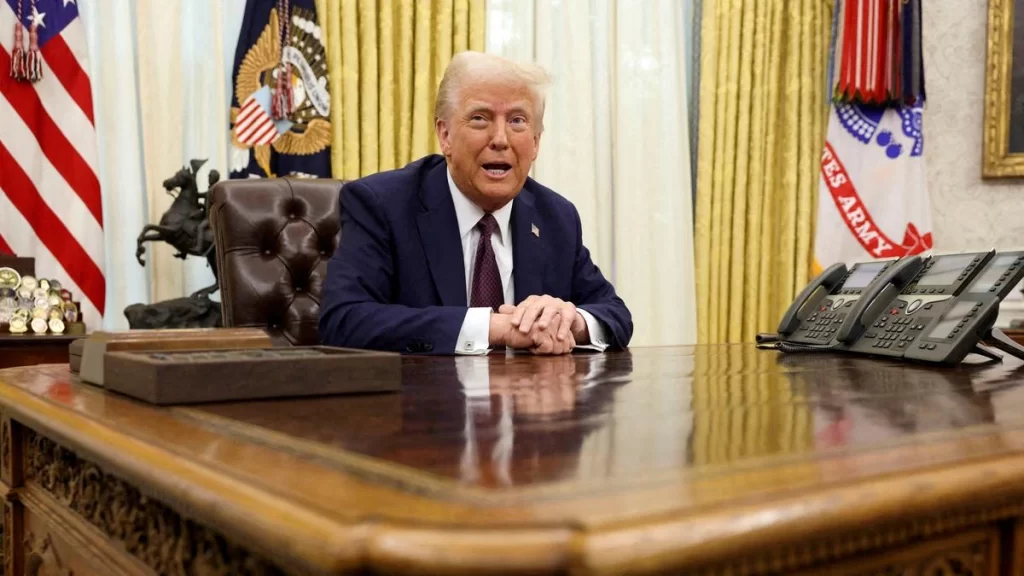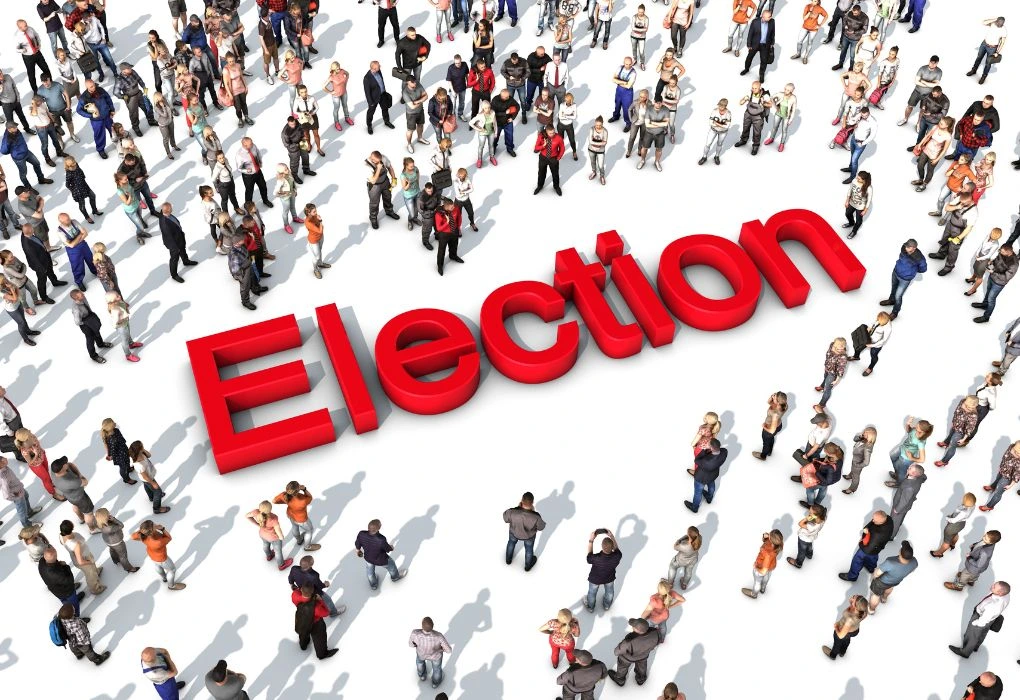Sweeping Mandates Introduced, Including Proof of Citizenship for Voter Registration
President Trump signed an extensive executive order on Tuesday (March 25, 2025) aimed at reforming the U.S. electoral process. The new directive mandates that individuals provide documentary proof of citizenship to register for federal elections and requires all ballots to be received by Election Day to be counted.
Trump order criticizes the country’s current election system

The Trump order criticizes the country’s current election system for lacking sufficient safeguards and directs federal agencies to collaborate with states to share voter registration data and investigate election-related crimes. States that do not comply risk losing federal funding, a provision likely to face legal opposition.
The move aligns with Mr. Trump’s long-standing skepticism toward election integrity. He has frequently claimed, without evidence, that widespread fraud has tainted past elections. Since his 2020 defeat to Democrat Joe Biden, he has actively pushed for reforms, particularly targeting mail-in voting, which he claims is susceptible to abuse.
A central component of the Trump executive order is the requirement for voters to present proof of citizenship when registering. This pre empts congressional action on the Safeguard American Voter Eligibility Act (SAVE Act), a Republican-backed bill designed to impose similar measures.
Republican lawmakers argue that such restrictions are essential for maintaining public trust in elections. However, noncitizen voting is already a felony under federal law, punishable by criminal charges and potential deportation.
Voting rights advocates warn that millions of eligible voters could be disenfranchised due to the lack of accessible documentation. A 2023 report by the Brennan Center for Justice estimates that approximately 21.3 million U.S. citizens of voting age lack immediate proof of citizenship. Critics also highlight potential issues for married women who changed their last names, as discrepancies between birth certificates and current identification could create hurdles in the registration process.
The Trump order instructs multiple federal agencies, including the Department of Homeland Security, the Social Security Administration, and the State Department, to assist election officials by providing data that could help identify non-citizens in voter rolls. Additionally, the U.S. Attorney General is directed to prioritize prosecution of election-related crimes in states that refuse to share such data with the federal government.
Another significant provision seeks to ensure that ballots are both cast and received by Election Day. Currently, 18 states and Puerto Rico accept mail-in ballots postmarked by Election Day but received afterward. The executive order aims to end this practice by conditioning federal funding on compliance with stricter ballot deadlines.
The Trump order is expected to face significant legal challenges, as the U.S. Constitution grants states the primary authority over election laws. While Congress has historically regulated certain aspects of voting, such as through the Voting Rights Act, states retain control over election procedures, including registration and ballot deadlines.
Jena Griswold, Colorado’s Democratic Secretary of State, condemned the order, calling it an “unlawful overreach” that undermines voter access. Representative Joe Morelle of New York, the ranking Democrat on the House elections oversight committee, labelled the move “immoral and illegal.” Election law attorney Marc Elias has already signalled impending legal action, asserting that the order will not withstand judicial scrutiny.
Conversely, Republican leaders and election integrity advocates have praised the directive. Representative Bryan Steil of Wisconsin, chairman of the House elections committee, described it as “a critical step toward securing our elections from foreign influence.” Georgia Secretary of State Brad Raffensperger welcomed the decision, commending it as “a necessary measure to ensure election integrity.”
The order also directs the U.S. Election Assistance Commission to revise federal voting system guidelines. It includes a provision against the use of barcodes and QR codes in ballot counting, a method currently used in states like Georgia. The impact of this change on existing election infrastructure remains unclear.
Simultaneously, the Republican National Committee has launched a nationwide review of voter registration list maintenance. This effort includes public records requests from election offices across 48 states and Washington, D.C., aiming to examine how states manage voter rolls and remove ineligible voters.
As he signed the order, Mr. Trump reiterated his stance on election fraud, stating, “This is the beginning of real election security in America.” He also hinted at additional executive actions in the coming weeks, indicating further election-related reforms on the horizon.





